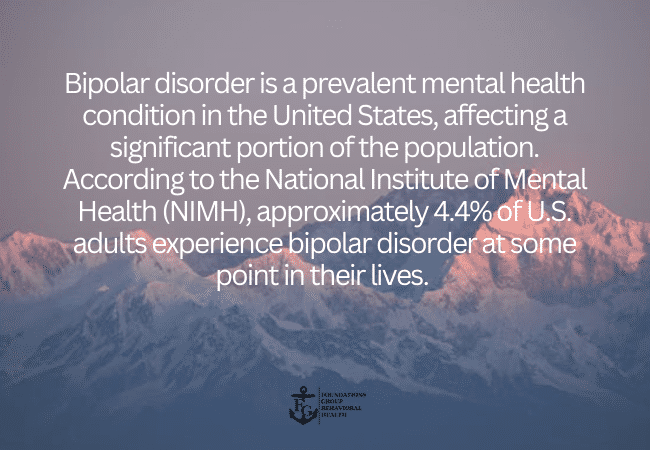Bipolar disorder is a complex mental health condition characterized by dramatic shifts in mood, energy levels, and behavior. For individuals living with bipolar disorder, managing intense emotions, including anger, can be a significant challenge. Anger outbursts, irritability, and aggression are common but often misunderstood symptoms of this condition.
This blog explores the connection between anger management and bipolar disorder, providing insights into its causes, symptoms, and effective treatment options.
Understanding Bipolar Disorder
Bipolar disorder is a mental health condition marked by extreme mood swings that range from manic highs to depressive lows. These mood episodes often include periods of intense irritability or anger, particularly during manic or mixed states. While anger is not a diagnostic criterion for bipolar disorder, it is a common symptom that can significantly impact relationships, work, and overall well-being.
Key Features of Bipolar Disorder
- Manic Episodes
During manic episodes, individuals may feel euphoric, overly energetic, or impulsive. However, these episodes can also involve heightened irritability and anger outbursts. - Depressive Episodes
The depressive phase of bipolar disorder is characterized by prolonged sadness, fatigue, and hopelessness. While anger is less common during this phase, feelings of frustration and irritability may still occur. - Mixed Episodes
A combination of manic and depressive symptoms can create a volatile emotional state, where anger and irritability are particularly pronounced.
The Link Between Bipolar Disorder and Anger
Bipolar disorder is a complex mental health condition that affects mood, energy levels, and behavior. While it is most commonly associated with periods of extreme highs (mania) and lows (depression), anger is another significant emotional response linked to the condition. For many individuals with bipolar disorder, anger can manifest as irritability, frustration, or outright rage, particularly during manic or mixed episodes. Understanding the relationship between bipolar disorder and anger is essential for effective management and treatment.
How Bipolar Disorder Influences Anger
1. Emotional Dysregulation
Bipolar disorder disrupts the brain’s ability to regulate emotions, causing heightened sensitivity to external triggers. This emotional instability can amplify feelings of anger, making it harder for individuals to respond calmly in stressful situations.
2. Manic Episodes and Impulsivity
During manic episodes, individuals often experience heightened energy, irritability, and a reduced ability to control impulses. This lack of restraint can result in sudden outbursts of anger or frustration.
3. Mixed Episodes
Mixed episodes, where symptoms of mania and depression overlap, are particularly volatile. Individuals may feel agitated, restless, and overwhelmed by negative emotions, leading to frequent or intense expressions of anger.
4. Frustration from Depression
The depressive phase of bipolar disorder can also contribute to anger, albeit in a different way. Persistent sadness, feelings of hopelessness, and irritability may result in frustration, which can manifest as anger directed at oneself or others.
5. Co-Occurring Conditions
Anger issues may be exacerbated by co-occurring disorders like anxiety, trauma, or substance abuse. These overlapping conditions require integrated treatment, such as a Co-Occurring Disorder Treatment Program, to address the root causes effectively.
Recognizing Signs of Anger in Bipolar Disorder
Identifying the ways anger manifests in bipolar disorder is the first step toward managing it effectively. While everyone experiences anger, the frequency, intensity, and impact on daily life are what differentiate it as a symptom of bipolar disorder.
Behavioral Signs
- Frequent Outbursts: Sudden and intense expressions of anger over minor issues.
- Physical Aggression: Instances of yelling, throwing objects, or physical confrontations during episodes of anger.
- Impulsivity: Acting out in ways that are reckless or harmful, often without considering the consequences.
Emotional Signs
- Heightened Irritability: Persistent feelings of annoyance or frustration that seem disproportionate to the situation.
- Restlessness: A sense of unease or agitation that can escalate into anger when left unchecked.
- Persistent Resentment: Lingering feelings of unfairness or injustice that fuel anger.
Physical Signs
- Physical Tension: Clenched fists, tightened muscles, or a racing heartbeat when angry.
- Stress-Related Symptoms: Headaches, stomachaches, or fatigue following anger episodes.
Impact on Daily Life
- Strained Relationships: Frequent arguments or conflicts with loved ones due to anger.
- Workplace Challenges: Difficulty maintaining professional relationships or meeting job expectations because of irritability or outbursts.
- Emotional Exhaustion: Feeling drained after prolonged episodes of anger or frustration.

The Importance of Anger Management in Bipolar Disorder
Uncontrolled anger can have far-reaching effects on an individual’s personal relationships, career, and mental health. For individuals with bipolar disorder, learning to manage anger is a vital component of treatment and overall wellness. Here’s why anger management is essential:
1. Preventing Relationship Strain
Anger, if not managed properly, can lead to arguments, misunderstandings, and breakdowns in communication. Over time, this strain can damage relationships with friends, family, and coworkers. Learning anger management techniques helps individuals build stronger, healthier relationships.
2. Reducing Risk of Harm
Unchecked anger during manic or mixed episodes can lead to impulsive or aggressive behaviors, potentially putting the individual or others at risk. Effective anger management reduces the likelihood of such incidents.
3. Improving Emotional Stability
Managing anger contributes to better overall emotional regulation, allowing individuals to maintain a more balanced mood and cope with stress more effectively.
4. Supporting Treatment Goals
Anger can interfere with the success of treatments for bipolar disorder. For example, anger outbursts may lead to missed therapy sessions or disrupted medication routines. Addressing anger ensures that individuals can fully engage in programs like the Half Day Treatment Program or Outpatient Mental Health Program.
5. Enhancing Quality of Life
By addressing anger issues, individuals can experience improved mental health, greater self-confidence, and a better quality of life. They can focus on achieving personal goals without the constant disruption caused by uncontrolled anger.
How Treatment Programs Help with Anger and Bipolar Disorder
At Foundations Group Behavioral Health, we offer specialized programs to address the interplay between bipolar disorder and anger, including:
1. Bipolar Disorder Treatment Program
This program provides comprehensive care to stabilize mood swings, reduce irritability, and manage anger through therapies like cognitive-behavioral therapy (CBT) and dialectical behavior therapy (DBT).
2. Psychiatric Day Treatment
Ideal for individuals requiring structured, intensive daytime care, this program offers therapy, medication management, and skill-building activities to address anger and emotional instability.
3. Half Day Treatment Program
This flexible option supports individuals in managing their anger while maintaining other responsibilities. It includes a combination of individual and group therapy sessions tailored to each person’s needs.
4. Outpatient Mental Health Program
Designed for those needing ongoing support, this program focuses on therapy, psychoeducation, and strategies to improve anger management while allowing participants to live at home.
5. Co-Occurring Disorder Treatment Program
For individuals with bipolar disorder and additional conditions like anxiety or trauma, this program provides integrated care to address all aspects of mental health.
Strategies for Managing Anger in Bipolar Disorder
In addition to professional treatment, individuals can adopt practical strategies to manage anger in daily life:
1. Practice Mindfulness and Relaxation Techniques
Mindfulness meditation, deep breathing, and yoga can help calm the mind and reduce anger during emotional flare-ups.
2. Identify Triggers
Recognizing situations, people, or events that provoke anger can help individuals avoid or prepare for them.
3. Develop Healthy Communication Skills
Learning assertive communication can reduce misunderstandings and conflicts that often lead to anger.
4. Engage in Regular Physical Activity
Exercise is a powerful way to release pent-up anger and improve mood stability.
5. Create a Crisis Plan
Having a step-by-step plan to follow during episodes of intense anger can prevent escalation and ensure safety.
Why Professional Support Matters
While self-help strategies are beneficial, managing bipolar disorder and its associated anger often requires professional intervention. A Behavioral Health Treatment Center in Massachusetts, like Foundations Group Behavioral Health, offers the expertise and resources necessary for effective care. Our team provides individualized treatment plans that address the root causes of anger and equip individuals with the tools to lead fulfilling lives.
When to Seek Help
If you or a loved one is struggling with anger related to bipolar disorder, it’s crucial to seek help promptly. Indicators that professional intervention is needed include:
- Frequent anger outbursts affecting personal or professional relationships.
- Difficulty calming down or controlling anger.
- Co-occurring symptoms such as anxiety, depression, or substance use.
- A history of trauma or unresolved emotional pain.
Early intervention through programs like the Anxiety Treatment Program, Depressive Disorder Treatment Program, or Trauma Disorder Treatment Program can significantly improve outcomes.
Take the First Step Toward Wellness
Anger management is a vital component of bipolar disorder treatment. At Foundations Group Behavioral Health, we are dedicated to helping individuals regain control of their emotions and improve their quality of life. With programs like Psychiatric Day Treatment, Half Day Treatment Programs, and the Bipolar Disorder Treatment Program, we provide comprehensive care tailored to each individual’s needs.
Conclusion
The link between bipolar disorder and anger is complex, but with the right tools and support, it is manageable. Recognizing the signs of anger, understanding its connection to bipolar disorder, and seeking appropriate treatment are essential steps toward recovery. Programs like those offered at Foundations Group Behavioral Health—including the Bipolar Disorder Treatment Program and Psychiatric Day Treatment—are designed to empower individuals to regain control over their emotions and lead fulfilling lives.
FAQs on Bipolar Disorder and Anger
Is anger a symptom of bipolar disorder?
Yes, anger can be a symptom of bipolar disorder, particularly during manic or mixed episodes. It often manifests as irritability, impulsive outbursts, or frustration.
Why is anger common in bipolar disorder?
Anger in bipolar disorder is linked to emotional dysregulation, impulsivity during manic phases, and heightened irritability during mixed episodes. Depression can also lead to frustration and resentment.
How can I recognize anger issues in bipolar disorder?
Signs include frequent outbursts, heightened irritability, restlessness, physical tension, and behaviors like yelling or aggression that impact daily life.
Can anger in bipolar disorder be managed?
Yes, anger in bipolar disorder can be managed with proper treatment, such as a Bipolar Disorder Treatment Program, therapy, and coping strategies like mindfulness and stress reduction.








